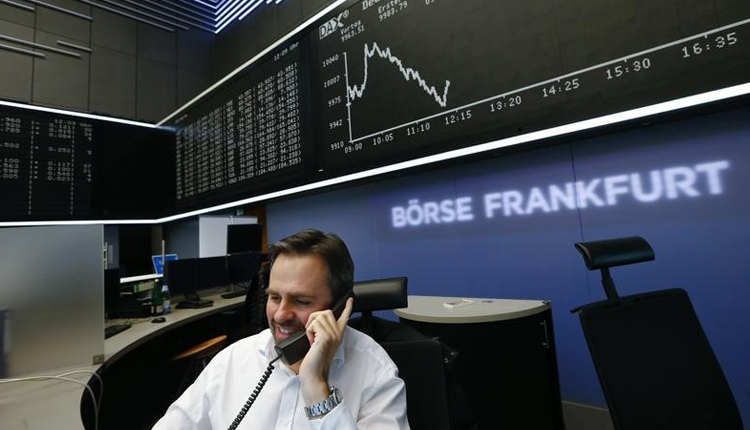European markets closed higher Friday after Italian parties averted the prospect of a snap election and Spain’s leader was ousted and replaced.
The pan-European Stoxx 600 closed provisionally up almost 1 percent, with most sectors and major bourses in positive territory.
Among national indexes, Italy’s FTSE MIB bounced almost 1.5 percent Friday after President Sergio Mattarella approved a coalition deal for the country’s populist parties. Little-known professor Giuseppe Conte was later sworn in as prime minister. The euro zone’s third-largest economy, which has endured months of political uncertainty, had sent global financial markets reeling earlier in the week.
Spain’s IBEX 35 jumped 1.76 percent after Spanish Prime Minister Mariano Rajoy was ousted as leader of the country Friday. The incumbent was succeeded by Socialist Party leader Pedro Sanchez, after opposition lawmakers backed a motion of no-confidence against the incumbent.
Europe’s banking index led the gains, up 2 percent as Italian banks surged higher on the news that a coalition government was on course to be sworn in Friday. Banco BPM and BPER Banca were the top sectoral performers.
Meanwhile, Deutsche Bank’s chief executive insisted to staff that Germany’s flagship lender was financially sound Friday. His comments came after S&P moved to slash the bank’s credit rating to “BBB+” from “A-.” Shares of Deutsche Bank were up 2.76 percent.
Looking at individual stocks, Elior Group soared near to the top of the European benchmark Friday morning after Credit Suisse upgraded its stock recommendation to outperform. Shares of the French catering firm were 7.3 percent higher.
On Wall Street, stocks traded higher on the back of stronger-than-expected jobs data released on Friday.
U.S. nonfarm payrolls increased by 223,000 in May while the unemployment rate was 3.8 percent, according to the Bureau of Labor Statistics. Analysts polled by Reuters had expected a gain of 188,000 jobs.
President Donald Trump surprised watchers when he said on Twitter that he was “looking forward” to seeing the numbers ahead of their release. The president typically gets to see the numbers the night before they are sent out to the public.
On Thursday, the U.S. said it would impose tariffs on aluminum and steel imports from Canada, Mexico and the European Union.
The move immediately prompted vows of retaliation from countries targeted by the charges, reigniting concerns of a global trade war.
Source: CNBC


